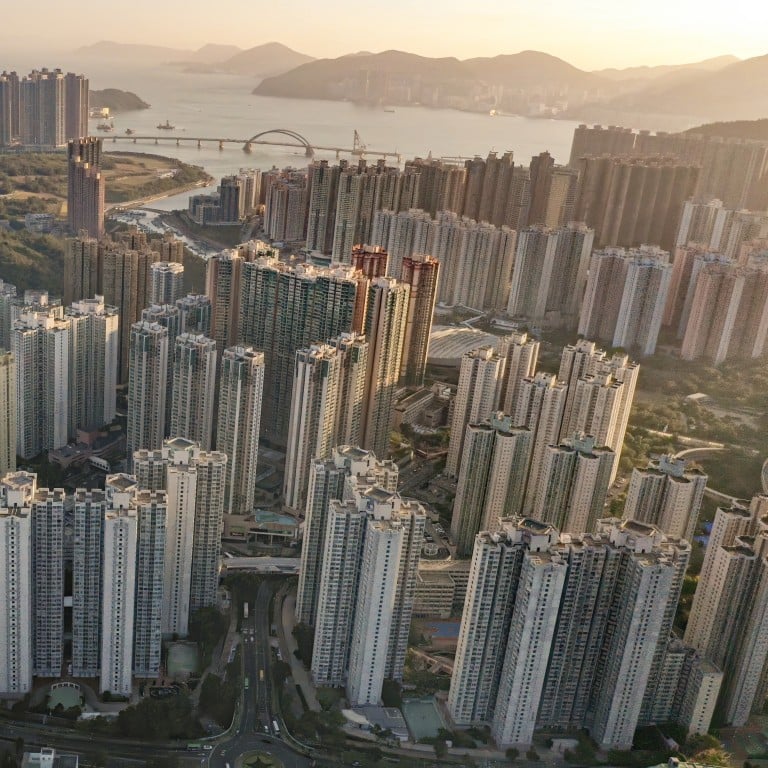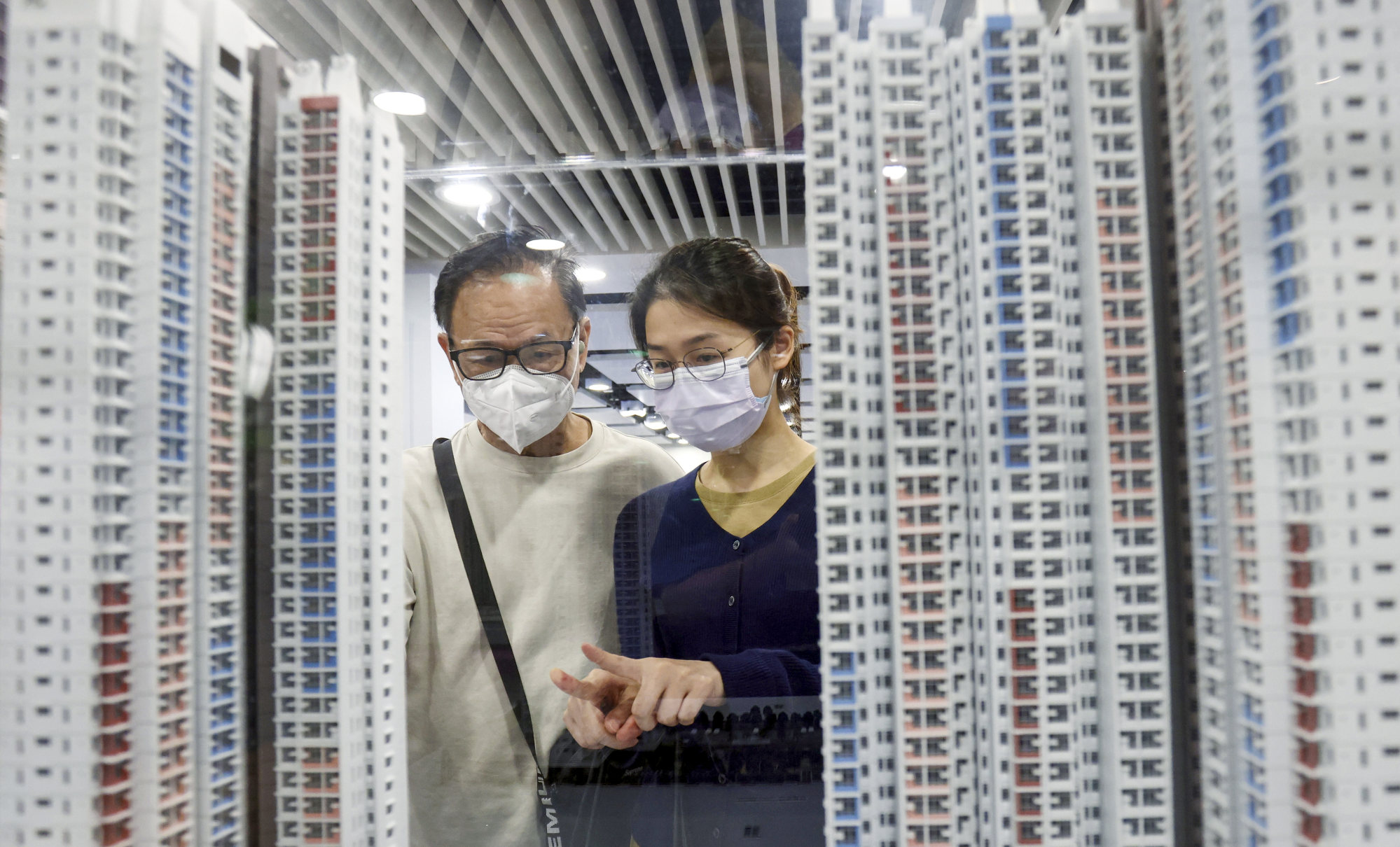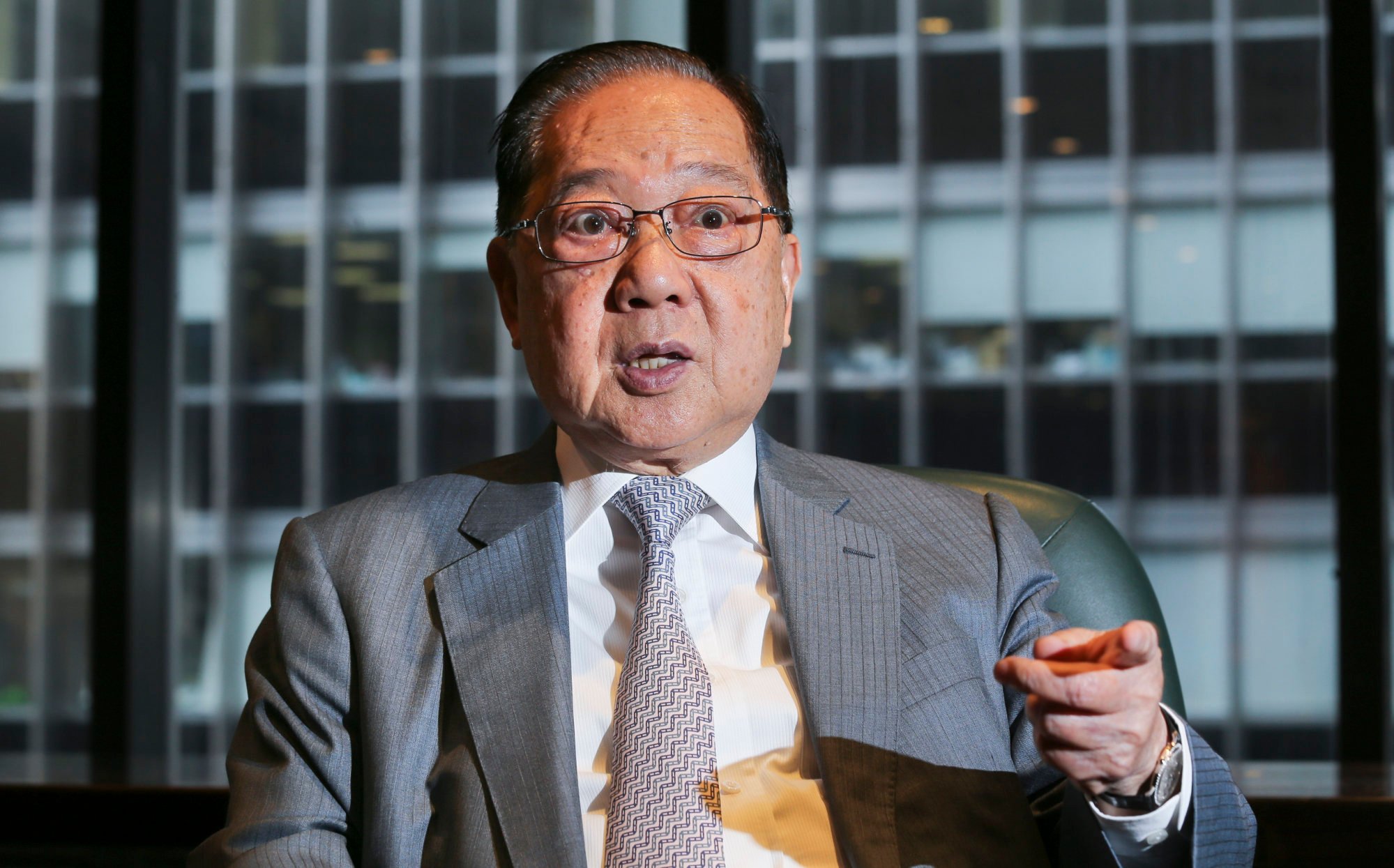
Explainer | Hong Kong’s housing crisis: what you need to know about a new public-private partnership to tackle the problem
- Housing minister Winnie Ho says developers could help boost construction capacity and efficiency, as well as unleash private land potential
- New scheme receives cautious welcome, but expert says market assessment and more details needed
Housing authorities in Hong Kong have unveiled the Private Subsidised Sale Flat – Pilot Scheme, designed to restart a public-private partnership with developers to build affordable homes for middle-income buyers.
The Post looks at why the administration has embraced the private sector again and how the new scheme differs from similar attempts at cooperation.
1. Why invite private developers to help?
Lee said at the time that Hong Kong needed to tap into market forces and promote public-private partnerships.
Secretary for Housing Winnie Ho Wing-yin explained on Tuesday that working with private companies could help boost construction capacity and efficiency, as well as unleash the development potential of private land.
Three government sites have been identified under the new scheme and two, in Tung Chung and Chai Wai, will be put up for tender by the end of the financial year.

Private developers can also apply to build subsidised flats on their own rezoned land.
A concessionary land premium, set at one-third of market value, will be offered for the domestic portion of any development under the new public-private scheme.
Flats built as part of the programme have to be sold at about 65 per cent of market value. The discount is similar to the 62 per cent of market value for the latest Home Ownership Scheme flats.
2. What response has the pilot scheme generated?
Stewart Leung Chi-kin, the chairman of the executive committee of the Real Estate Developers Association of Hong Kong, gave the new scheme a cautious welcome.
He said developers should be interested in taking part, but more assessment of the market and the scheme’s terms and conditions would be needed.
Legislator Chan Hok-fung, also a spokesman for housing affairs for the Democratic Alliance for the Betterment and Progress of Hong Kong, said setting the sale price of flats at 65 per cent of market value was too rigid.
Hong Kong needs golf course for business networking, ex-minister Fred Ma says
“Home Ownership Scheme flat prices are set based on prevailing market data when the flats are about to be put on sale. But now the flats built under the pilot scheme are sold at a preset 35 per cent discount,” Chan said.
“If the market situation changes, the flats could become unaffordable to buyers, despite their eligibility to apply to purchase.”
Ryan Ip Man-ki, vice-president and co-head of research at the Our Hong Kong Foundation think tank, said encouraging more public-private partnerships was a good move. But he warned the complicated requirements could discourage developers from bidding on projects.

3. How is the scheme different from previous ones?
The government introduced the Private Sector Participation Scheme in 1977. Under the initiative, private developers were invited to tender for housing sites on which they were required to build flats that met specifications laid down by the government.
If flats were unsold at the end of a preset period, the Housing Authority was obliged to buy them at a guaranteed price.
But under the new pilot scheme, developers will be responsible for putting all the flats in a development up for sale. The authority, the city’s major public housing builder, will not buy back any unsold flats from the developers.
Ho said the change could be an incentive for developers to ensure they provided good-quality flats.
Subsidised flats built by Hong Kong developers to sell at 65 per cent of market price
“I cannot see how developers would make big investments and sacrifice quality to a point where they wouldn’t be able to sell or profit from them,” she told a radio programme on Wednesday.
The flats offered by private developers should be no less than 279 sq ft and at least 70 per cent of those for sale at each project must be bigger than 374 sq ft. The government will also specify the minimum number of units to be built.
The Private Sector Participation Scheme and Home Ownership Scheme were halted in 2002 as part of a government bid to shore up the private property market amid a slump that left many homeowners with negative equity.
More than 40 housing estates were built under the Private Sector Participation Scheme.
The Home Ownership Scheme restarted in 2011.

4. How is the existing Land Sharing Pilot Scheme doing?
Hong Kong in 2020 launched an initiative allowing privately built housing sites to have a higher development density on the condition that at least 70 per cent of the additional gross floor area gained should be used for public or subsidised housing.
Introduced by then leader Carrie Lam Cheng Yuet-ngor, the Land Sharing Pilot Scheme required land owners to carve out part of their sites and hand it over to the government for housing development, with the rest used for private housing.
Think tank vice-president Ip said some developers might not find the terms attractive, which would explain the lukewarm response from the private sector. The scheme had only received six applications as of June.
Three were granted approval in principle. These involved development sites in Yuen Long and Tai Po, which are expected to yield about 21,600 homes, including about 15,100 public housing flats.
Rezoning procedures are expected to start by the end of the year.
The Development Bureau last month announced the scheme would be extended by a year to May 5, 2024.

5. What is Hong Kong’s housing supply situation?
The government has said land supply between 2019 and 2048 will be more than 7,000 hectares (17,297 acres), surpassing the estimated demand of about 6,000 hectares.
The projected demand for public housing in the next 10 years will amount to 301,000 flats.
The government said it had identified enough land to build about 360,000 flats, but emphasised the production stream for new public housing would be uneven.
Only about a third of the units would be ready between 2023 and 2028, while the remainder would be completed between 2028 and 2033, it said.
Hong Kong aims to cut wait for public flats to 3 years: housing secretary
6. What is Beijing’s stance?
Beijing has described Hong Kong’s housing shortage as a “deep-rooted problem” which should be tackled.
The director of the State Council’s Hong Kong and Macau Affairs Office, Xia Baolong, earlier said he hoped Hong Kong could “bid farewell” to subdivided flats and cage homes by 2049.
Since taking office, city leader Lee has pledged to make “breakthroughs” in housing supply and come up with solutions to address the housing shortage.

